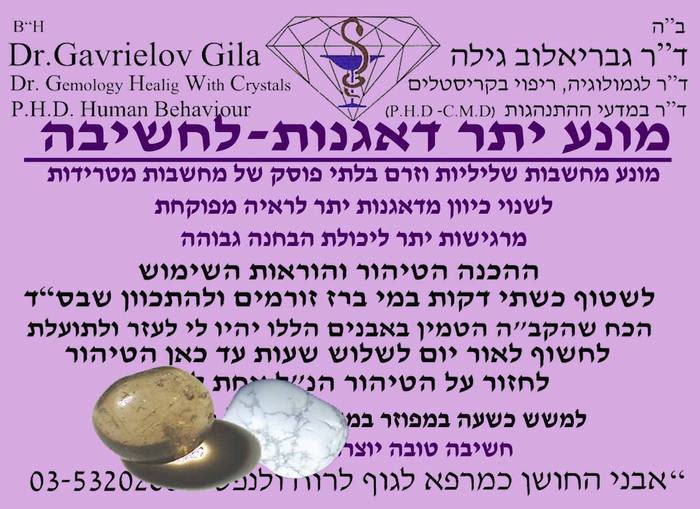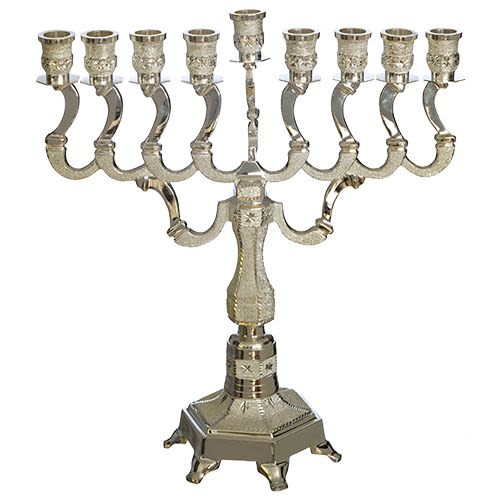
The Wish For Easy Life
“The Holy One does not come with unreasonable demands on his creatures.” This means that Hashem does not demand something from us that is beyond...

“The Holy One does not come with unreasonable demands on his creatures.” This means that Hashem does not demand something from us that is beyond our capabilities…
Self Knowledge
The prerequisite to accomplishing our mission in life is to realize that we have a yetzer hara, Evil Inclination. That's called: “One should know his place.”
Just as we are aware of the different part of our body, we must be aware of our spiritual components. Everyone was created with a yetzer hara. It's a fact of life, and it's no reason to despair. We were created with a yetzer hara, and we were created for the purpose of overcoming that yetzer hara.
If a person does not know his place – does not realize that he has a yetzer hara – he will become bewildered when his yetzer hara tries to overcome him, and he will not be able to attain his tikun. He resembles a person holding a map but with no idea of where he's located. Even the best map in the world will not help him find his way.
How much more so when it comes to the map of teshuvah! Even a person who knows his place must work hard to reach his tikun, so if he does not know his place, he will certainly get lost.
It takes a lifetime of hard work to attain our tikun. Everybody, no matter how righteous, occasionally stumbles and gives into anger, slander and physical desires. Life is full of the challenges of earning a living, raising a family etc., etc.
Until the day we die, we are constantly battle our yetzer hara. Sometimes we win, and sometimes we are vanquished. The more we progress in the path of teshuvah, the more our yetzer hara strengthens itself to oppose us, as the Sages say, “The greater the person, the greater his yetzer hara.”
Similarly, it is brought in Likutey Halachot (Honaah 3):
“The rule is that when a person wants to become close to Hashem and return in teshuvah there will be thousands and tens of thousands of ups and downs, without measure…”
If we become depressed every time we are overwhelmed by the yetzer hara, we will und up losing the battle. Let's accept our situation; because once we accept it, we are able to fight it, and if we really put up a good fight, we will definitely win! The battle itself will bring us pleasure.
Hashem Helps Us
We learned that everyone has a yetzer hara. But how do we overcome that yetzer hara? With Hashem's help! The Sages say, "A man’s yetzer hara tries to overcome him every day and were it not for the Holy One’s help, he could never overcome it.” We must constantly pray and beseech Hashem to help us overcome the yetzer hara and not sin.
At the same time, we must stop blaming ourselves and getting angry or depressed with our spiritual downfalls. Instead of attain his tikun, a person who gives into despair and depression loses the ability to accomplish anything.
About this Rebbe Nachman says (Likutey Moharan, Torah, 282):
“When people are far from God, it's usually because they are depressed and see themselves in a negative light because of the damage they've caused. Each person knows his own inner pain. Some people have such a low view of themselves that they fall into complete despair. As a result they put no effort into prayer and do not even try to practice what they are still capable of doing.
"One must fight this in every possible way. When a person sees himself in a bad light, it may be because of bad things he did. But the resulting depression is the work of the yetzer hara, who tries to destroy a person's resolve. Therefore, you must be firm and constantly review this teaching [of azamra] and search for your good points at all times. This is the way to give yourself new life and make yourself happy, knowing that God will help you. You will be able to pray and sing and give thanks to God and return to God with all your heart, as the Rebbe explains.”
What does Hashem want from us?
The Talmud says: “The Holy One does not make unreasonable demands on his creatures” (Avoda Zara 3). This means that Hashem does not demand something from us that is beyond our capabilities. Hashem certainly knows the “place of a man,” as it is written: “For He knows our urges,” and therefore Hashem says to each and every one of us:
“Hear, my son! To tell you never to sin is impossible, for there are commandments that you do not yet have the strength to fulfill. However, it is possible to tell you to do teshuvah for transgressing those commandments, for that is in your hands. This is the only way that you will someday be able to fulfill those commandments!”
Once we know our place and realize there some things are still beyond our capabilities, we can begin the real work of striving towards a complete tikun. Instead of blaming ourselves or becoming depressed about things that the Creator knows we are not capable of doing, we will be free of our guilt feelings (which originate from the premise that we should have been stronger) and begin the hard work of fulfilling our mission in life.
The Advice
Every person, man or woman, young or old, is obligated to spend an hour a day in Hitbodedut. It can be done anywhere, in a garden, forest, room or porch, as long as the person is able to be alone with his Creator.
We should start out by thanking God and then tell God everything that has happened to us since the last time we secluded ourselves in Hitbodedut. We should tell God every detail, thank Him for all the good things we did, and tell Him where we need to improve. We should confess our transgressions, and do teshuvah for them. Afterwards, we should ask Hashem to fulfill our needs.
If we do this our entire life, we will constantly be doing teshuvah. Hashem will certainly help us to become righteous and fulfill our mission in life. Amen, may it be His will.












Tell us what you think!
Thank you for your comment!
It will be published after approval by the Editor.